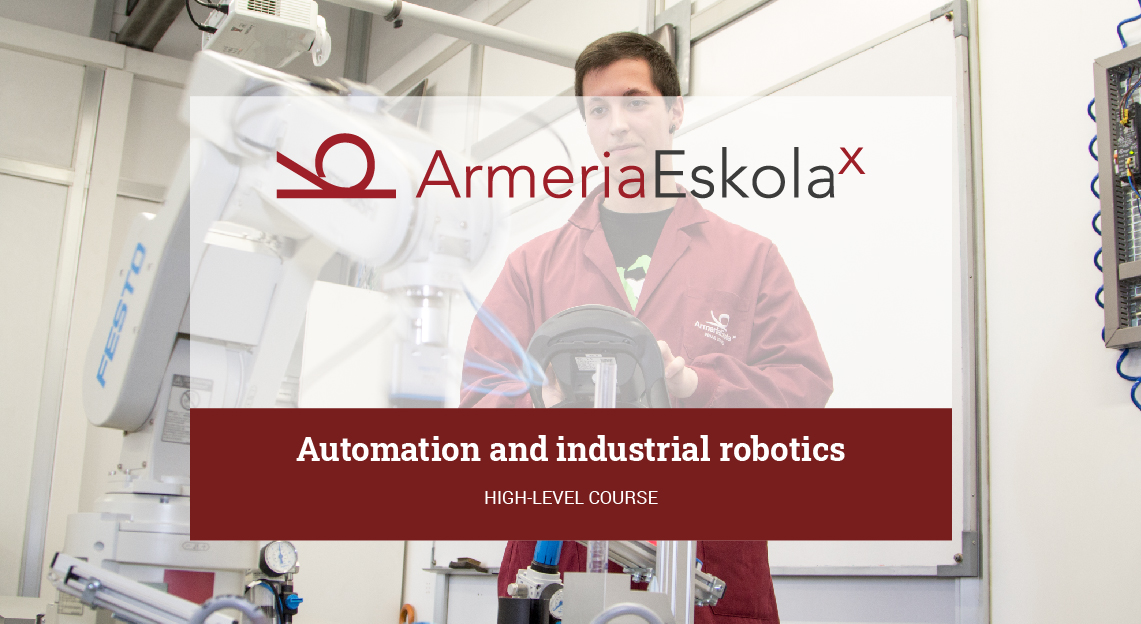High-level technicians in Automation and Industrial Robotics are professionals with multiple job opportunities in Industry 4.0, due to the spread of automation and application of new technologies in the process control, data collection and transmission.
In this course, you will learn to develop and manage projects related to the assembly and maintenance of automatic installations of measurement, regulation and control of processes in industrial systems. Moreover, you will gain skills about supervising and executing the assembly and maintenance in the commissioning of these systems, following criteria of quality, safety and respect towards the environment.




Job opportunities
Head of assembly/maintenance of automation systems
Team leader in an electromechanical workshop.
Technician in commissioning and maintenance of automation systems.
Technician in design of electrical control systems
Planner of automation systems.
Planner of communication networks
Programmer/controller of industrial robots
Designer of circuits and integrated systems
We use the High Performance Cycles (ETHAZI) learning model, which is organized around collaborative learning based on challenges.
It proposes a problematic situation that becomes a challenge and that -until the whole process reaches a result- is organized in the technical and specific competences of each cycle and in the transversal competences of strategic character at this moment such as: autonomy, teamwork, communication and digital competence.
The work process must allow students to live the situation as a challenge from which to generate the knowledge necessary to propose the best solutions.
The main characteristics of ETHAZI model are: intermodularity, evaluation of groups of self-managed teachers, adaptation of learning spaces for the development of competences.
We use RoboDK for simulation and offline programming of industrial robots.
Request more information
If you need to know more about the course, do not hesitate to contact us

